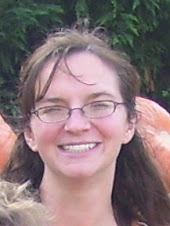If you haven't read any of Ursula K Leguin's books, definately do. She's the daughter of an anthroplogist and a writer, and it shows in her simple to read (but not simple to understand) scifi. I was first introduced to her via "The Left Hand of Darkness" as required reading in a college anthropology class. We also have her children's book "A Ride on the Red Mare's Back", and it is lovely.
So, she knows how to write. But does she know how to teach writing? Can anyone teach writing, or can you only learn it? That's a bigger debate than I want to get into here.
But I like EXAMPLE. How can you tell me how to use setting to move the story without giving me something great to read? Le Guin gives wonderful, lengthy, varied examples from Mark Twain to Virginia Wolf to Jane Austen. The part of me that likes to skim had a hard time not reading ahead to her next discussion, but I forced myself to slow down and enjoy the words. And they are worthy of study.
One of my favorite sections was on point-of-view. Le Guin writes a single scene from multiple POVs: first person, limited third person, involved author (or omniscient author- she has her own pet terms), objective narrator,observer-narrator in first person,objective narrator in third person. (Yes, there are more POVs than first, second and third limited or omniscient.) She also talks at length on POV changes and how to do so effectively, and then gives examples from literature. I learned quite a bit about a subject that I already understood pretty well, plus extras like POV standards in some genres.
Although all of the exercises appear designed to make you more aware of your writing and to learn technique, two stood out.
The chastity exercise (great name!)
What are we to be chaste about? Use of adjectives and adverbs. Write a piece of narrative prose up to one page without using adj or adverbs. And no cheating by using dialogue.
A terrible thing to do
Take a piece up to four-hundred words and cut it by half.
Yikes. I cut a four thousand word short story in half to fit submission requirements, and it was extremely eye-opening. I think you have to do this exercise before you do a final revision on your manuscript. It forces you to economize, to distill meaning, and reveals how much is fluff. This is the best writing exercise I've done.
I am "love 'em and leave 'em" with most books, but every once in a while I find a keeper. This one goes on the short list.
What writing exercise has surprised/shocked/delighted/tortured you?
Radical Immersion: Becoming Your Character
-
We hear actors talk about immersing themselves into a character, often
using techniques rooted in the methods of the great character actor and
director K...
1 day ago



No comments:
Post a Comment